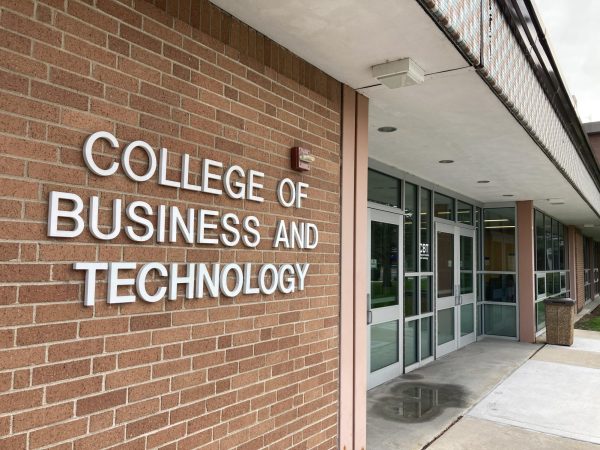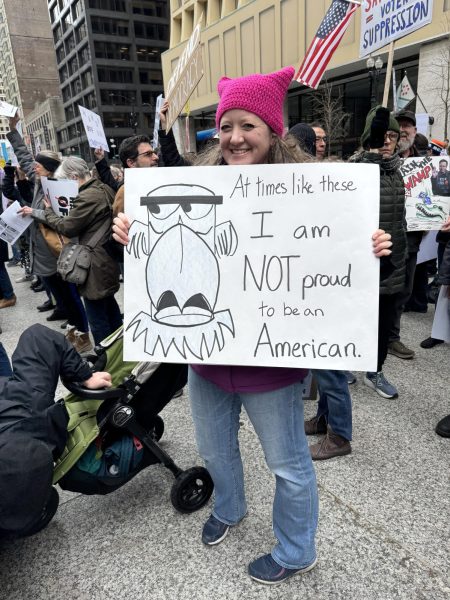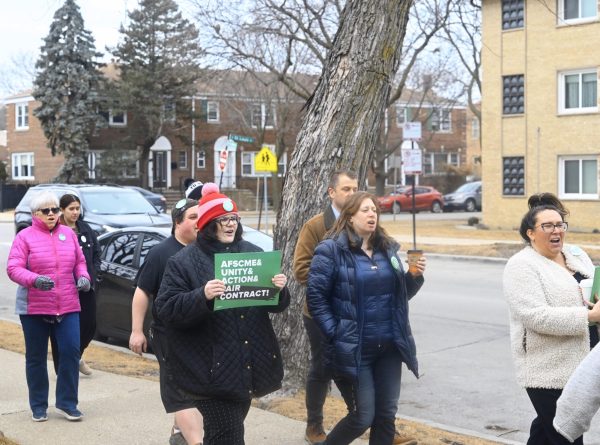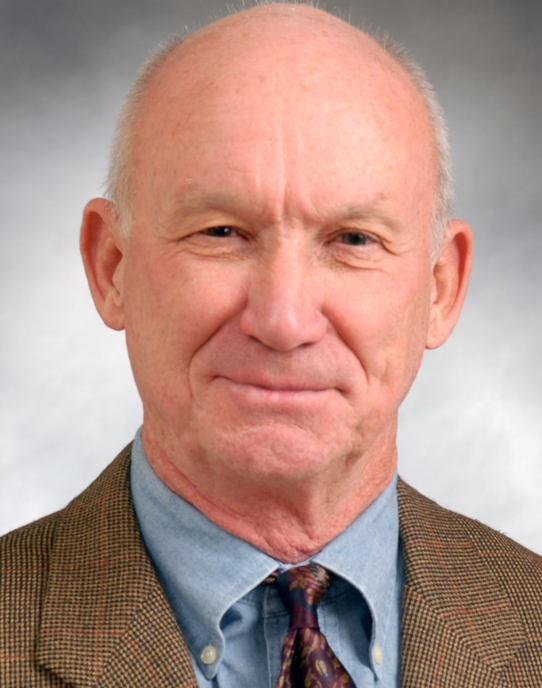Professor Talks Interest Rates on WTTW
The possibility of an interest rate increase by the Federal Reserve Bank of the United States has gained momentum since a Federal Open Market Committee meeting in April according to federalreserve.gov.
NEIU Professor Emeritus of Economics, Edward Stuart, was a participant on WTTW’s “Chicago Tonight,” and spoke about his view from the side opposing the rate increase. Although he is not a stranger to speaking his mind on the talk show—having been a guest numerous times before—this interview centered on the pros and cons on the decision the Federal Reserve, or the Fed, is considering.
“The first interview was essentially arguments for and against the Federal Reserve raising the interest rate that they control directly, which is the federal funds rate. It was like a conversation,” Stuart said. “Right now it’s at 0.25 percent and the question is, ‘Will they raise it another 0.25 or 25 basis points at their next meeting?’”
The Federal funds rate is the interest rate banks charge one another for one-day loans of reserves, or federal funds. According to statistics from the Federal Reserve Bank of St. Louis website, the Federal funds target rate went from 0.25 to 0.5 percent as of December 16, 2015.
“The Federal Reserve of the United States … is the bank of banks,” Stuart said “The Federal Reserve loans money to commercial banks who then can loan money to businesses and people to buy houses … and so forth. The reason the Federal funds rate is so important to ordinary people is that as the Federal funds rate goes up and down, the interest rate that you and I pay on car loans, credit cards and student loans goes up and down with it.”
If the Federal funds rate were to rise, students with education debt attached to a variable interest rate would see an increase in the amount of interest that they will have to pay back.
“These days, most credit cards, most consumer loans are variable rate loans,” Stuart said. “The reason I was opposed and still am opposed to raising the Federal funds rate is that if you make money more expensive to borrow then people either borrow less or don’t borrow at all and therefore they don’t spend and if they don’t spend then there aren’t more jobs and more business.”
The reason a rate increase is plausible is to combat increasing prices or inflation.
“You raise interest rates when there is too much spending and that might turn into inflation if prices go up too fast,” Stuart said. “People who are in favor of raising the Federal funds rate usually are more afraid of inflation than they are of unemployment and a slow economy.
“People, like me, who are in favor of keeping the Federal funds rate low are more worried about unemployment and slow economic growth than inflation.”
Fed Chair Janet Yellen is accused of a dovish reaction after data from a labor report returned weak numbers. According to a Reuters article published on March 30, the U.S. dollar hit a low after Yellen “pushed out expectations for the central banks’ next interest rate hike.”
Stuart said that a dove is someone who does not want to raise interest rates whereas a hawk is someone worried about inflation and wants to raise rates.
“I’m a dove on monetary policy,” he said.
The accusations were not far from truth as the Fed committee met to further discuss and conclude whether or not the rate increase would take place. According to a June 15 article updated by the Wall Street Journal, the Fed chose to keep the interest rates steady.
Another article published by the Wall Street Journal on June 15 reflected the difference between the original comments made about changing the rate and the Fed’s final decision not to change it. The article stated, “However, the actual path of the federal funds rate will depend on the economic outlook as informed by incoming data.”
Data on a weak labor market was what changed the Fed’s tune prior to even making a final decision.
Your donation will support the student journalists of Northeastern Illinois University's The Independent, either in writers' payment, additional supplies and other items of note. Your contribution will allow us to purchase additional equipment for writers/photographers/illustrators and cover our annual website hosting costs.
Rut Ortiz








